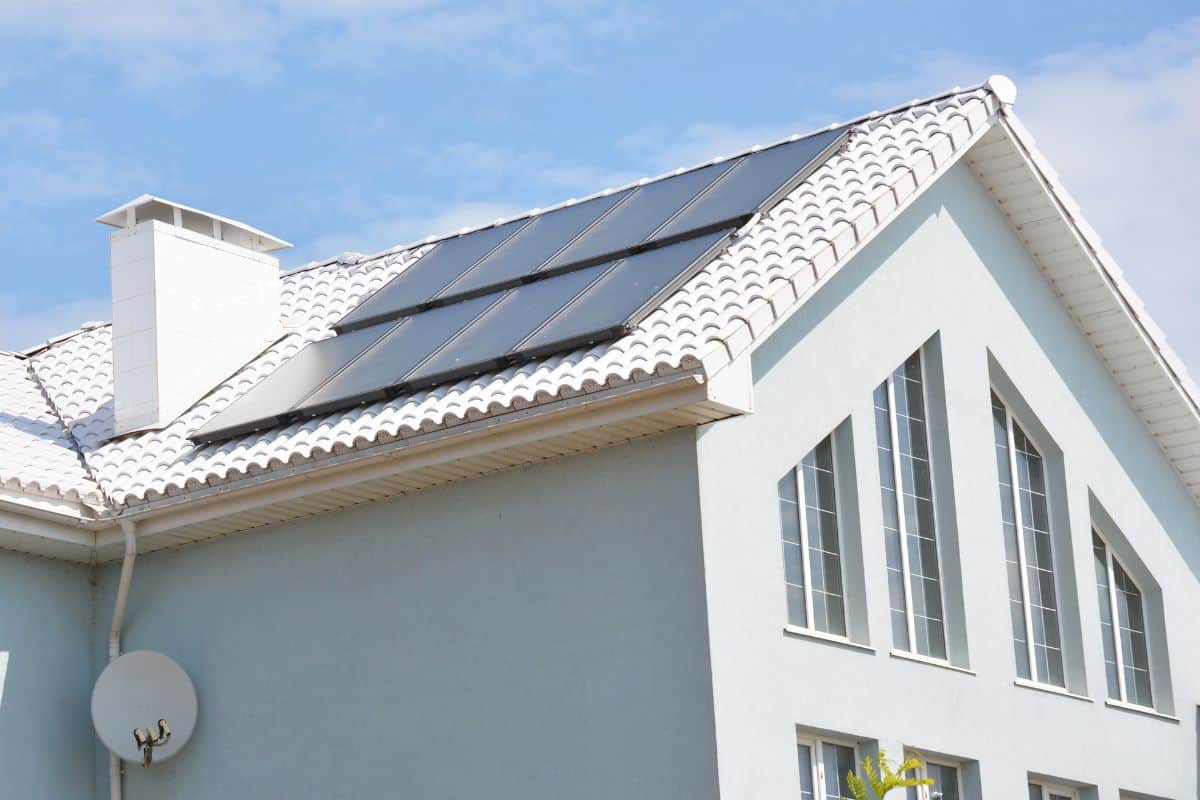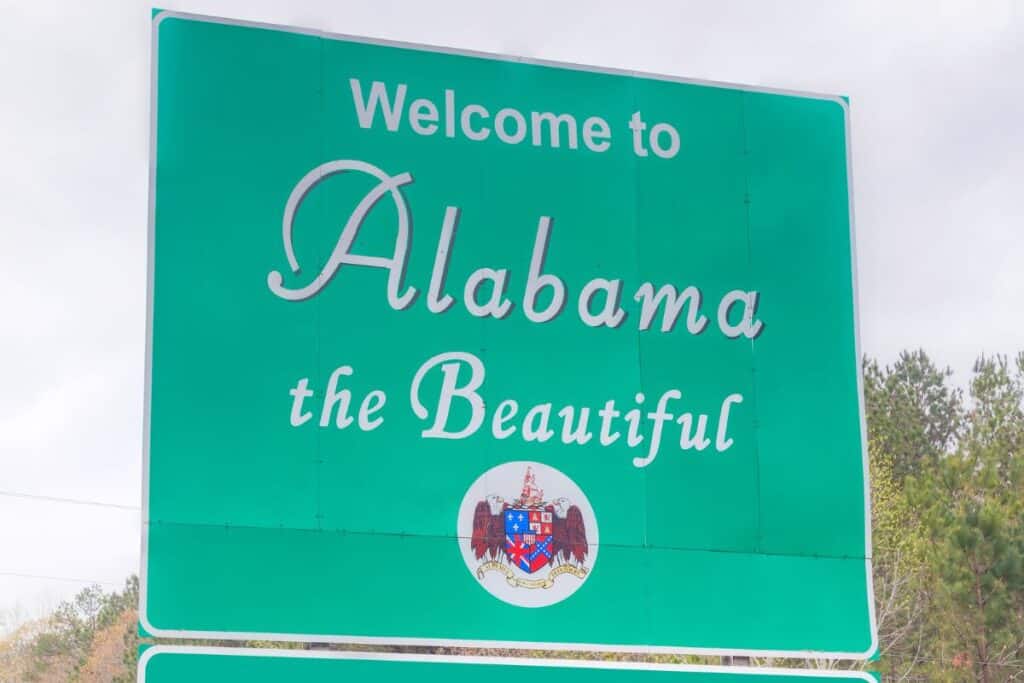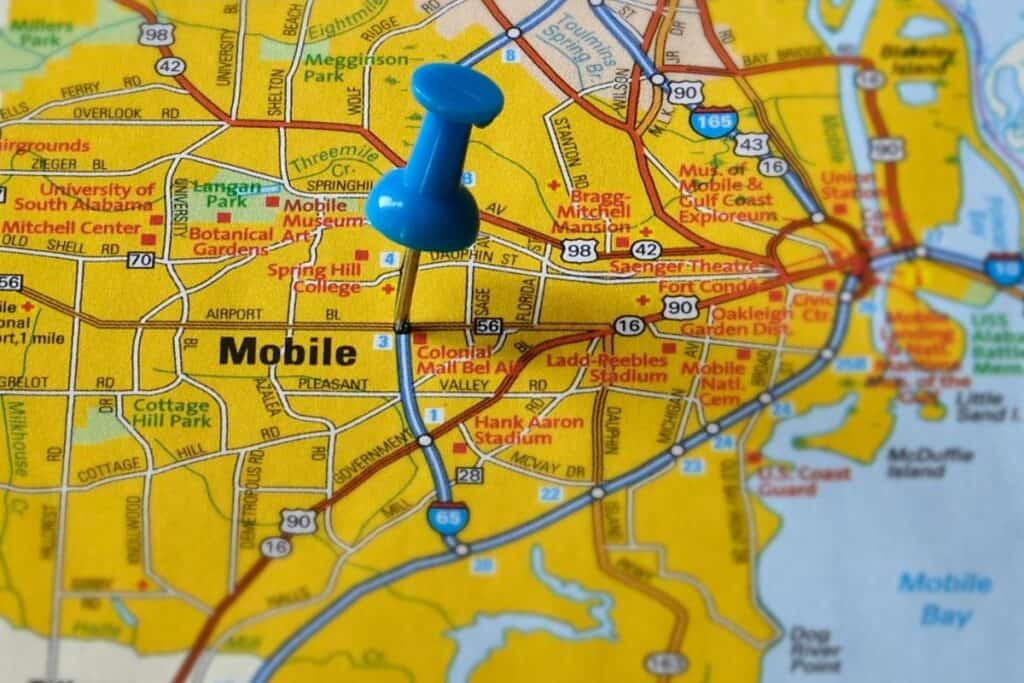If you’re considering hopping aboard the solar energy train in Alabama, you’ve come to the right place. This article will guide you through everything you need to know about installing solar in Alabama.
In Alabama, as the interest in renewable energy sources grows, many residents are considering solar power. However, understanding the laws, benefits, and potential roadblocks is crucial before making such an investment.

Transitioning to solar energy is a significant step, and it’s important to understand the specific nuances of installing solar panels in Alabama.
The southern state presents both opportunities and challenges for solar energy users.
Here, we’ll explore everything from the Alabama Solar Rights Act to the state’s stance on net metering and the capacity reserve charge imposed by Alabama Power.
Understanding the Alabama Solar Rights Act
The what I hear you ask? That’s a great place to start. What is the Alabama Solar Rights Act?
The Alabama Solar Rights Act, formally known as Act 2014-245, was introduced in 2014, offers certain protections for homeowners who wish to install solar energy systems on their properties. The main thrust of the legislation is to prevent homeowners associations (HOAs) from banning solar panel installations within their jurisdictions.
What that basically means is this Act means that any covenant or agreement that restricts or prohibits the installation of solar energy systems is void and unenforceable.
It does however allow for reasonable restrictions regarding size, placement, and manner of a solar energy system..

Before this Act, HOAs could entirely prohibit homeowners from installing solar panels based on aesthetic reasons or concerns about property values.
For example, consider a homeowner living in a community governed by a HOA in Birmingham, Alabama. Before the Act was passed, the HOA could have rules in place that completely banned the installation of solar panels. But under the Alabama Solar Rights Act, these rules would no longer be enforceable.
The homeowner would then be allowed to install solar panels on their property. However, the HOA could still place reasonable restrictions on the installation.
For instance, the HOA might limit the size of the solar panel system to ensure it doesn’t overly extend from the roof or mandate that the installation doesn’t violate any safety codes or regulations.
While the Alabama Solar Rights Act represents a significant step forward for solar power in Alabama, it’s important to note that this law does not apply to all situations or properties.
It primarily covers residential properties and does not protect commercial or industrial properties from similar restrictions.
As I always say, homeowners looking to install solar panels should consult with a local solar installer in Alabama or a legal expert specializing in renewable energy law to fully understand the legal landscape and potential restrictions on solar installations in your county.
The next thing to look at with regards to installing solar paowe in Alabama is the ‘Capacity Reserve Charge’ that is imposed by Alabama Power
The Challenge of the Capacity Reserve Charge
In another “what did y’all say?” moment, let’s find out what Alabama’s Capacity Reserve Charge is…
The Capacity Reserve Charge sun tax that homeowners with solar panels have to pay for the electricity they generate. It is a fee imposed by Alabama Power on customers who produce a portion of their electricity via solar panels.
This charge has raised considerable controversy, as it impacts the financial calculus of installing a residential solar power system.
Wait, what? Alabama Power is taxing the Sun?
Sort of…
Alabama Power states that the charge is in place to ensure that they can provide power to the solar customer when the solar system is not producing electricity, such as during the night or on cloudy days.
The utility company argues that maintaining the infrastructure to provide this power incurs costs, which are not covered by the solar customer if they are using the majority of the electricity they produce, thus not contributing significantly to the maintenance of the power grid.
To understand how the ‘Capacity Reserve Charge’ works, let’s consider an example.
Suppose you install a 5-kilowatt (kW) solar panel system on your home. Alabama Power calculates the fee based on the size of your system, with a current charge of around $5 per kilowatt, per month. Therefore, for a 5-kW system, the fee would be 5 kW * $5/kW = $25 per month.
This fee is added to your regular electricity bill and is charged regardless of how much electricity your solar panels produce.
So, if your panels produce more power than you consume in a given month, you will still be subject to this charge.

This additional cost has sparked criticism from renewable energy advocates who argue it reduces the financial incentive for homeowners to switch to solar.
In essence, the ‘Capacity Reserve Charge’ affects the cost-effectiveness of solar installations in Alabama and is a significant factor to consider when calculating the return on investment of a solar power system.
“But if you’re producing too much solar power, surely you can feed some back in to the grid?” I hear you ask.
This is what is known as net metering.
Let’s now look at whether or not net metering is possible in Alabama…
Is Net Metering possible in Alabama
Net metering, though common in many states, is not a straightforward matter in Alabama.
Alabama does not have a statewide net metering policy. However, certain utility companies, like Alabama Power, do offer a form of net metering known as “net billing.” Under Alabama Power’s net billing program, solar power producers receive a credit on their power bill for the excess solar energy they generate and send back to the grid.
But the compensation rate is less than the retail rate, which is not as financially advantageous as true net metering.
While net metering remains a contentious issue in Alabama, its absence does not necessarily mean installing solar panels is unprofitable or unfeasible.
The cost of solar panels has significantly decreased over the past decade, making solar energy an economically viable option despite the lack of robust state-level incentives.
Furthermore, federal incentives like the solar Investment Tax Credit (ITC) can help offset some of the upfront costs of installing solar panels.
Advocacy groups and renewable energy proponents continue to push for stronger solar policies in Alabama, including a true net metering program.
However, until such changes occur, Alabamians looking to install solar panels will need to carefully consider their potential return on investment and explore alternative ways to maximize the financial benefits of their solar energy systems.
This may include strategically planning when and how much electricity to use, investing in solar battery storage, or participating in demand response programs.

Is Installing Solar In Alabama Worth It?
Despite the challenges, installing solar panels in Alabama can still be a worthwhile investment, especially with the declining cost of solar technology and the federal solar tax credit, which can cover a significant portion of the installation cost.
It’s crucial, however, to fully understand the state’s legal landscape and potential restrictions on solar installations.
Before taking the leap, let’s take a look at the cost of installing solar in Alabama…
Breaking Down the Cost of Solar Panels in Alabama
In Alabama, the cost of installing a solar panel system largely depends on its size, the brand of the panels, and the installation company. However, it’s possible to provide some estimates to give you an idea.
As of now, the average cost of solar panels in Alabama is between $2.50 and $3.50 per watt. Given that the typical residential solar system size is around 5 kilowatts (5,000 watts), you can expect to pay between $12,500 and $17,500 for a solar panel system before any incentives or rebates.
To put these figures in perspective, let’s break down the components. The solar panels themselves usually account for about 30% of the total cost.
The rest of the expense comes from the inverter (which converts the solar energy into electricity your home can use), the mounts to secure the panels on your roof, wiring, and labor costs.
Remember, though, these figures are rough estimates, and the exact cost can vary. But don’t let the initial price tag deter you. Several factors can help offset these costs, making solar energy more affordable in the long run.
Firstly, the federal solar tax credit, also known as the investment tax credit (ITC), allows you to deduct 26% of the cost of installing a solar energy system from your federal taxes. It’s an incredible incentive for anyone considering switching to solar.
Secondly, while Alabama does not offer a state-wide solar incentive or rebate program, certain utilities might provide rebates. It’s always a good idea to check with your local utility company to see what they offer.
Finally, solar panels significantly reduce your monthly electricity bills, and these savings can accumulate over time. Most solar panel systems pay for themselves through these savings within 7 to 10 years.
While the upfront cost might seem high, installing solar panels in Alabama can be a financially savvy move when you factor in federal tax credits, potential rebates, and the long-term savings on your energy bills.
After all that you might be wondering why it’s so complicated connecting you solar installation to the grid in Alabama…
Navigating Alabama’s Complex Grid-Connection Process
Connecting your solar power system to the grid in Alabama can indeed seem complicated. This complexity arises from a few primary factors that intertwine policies, technical requirements, and financial aspects.
To begin with, Alabama’s utility policies don’t make it particularly easy for solar customers. While some states require utilities to offer net metering (which credits you for the excess power your panels generate), Alabama’s net metering policies are not mandatory.
In practice, this means utility companies can essentially decide whether they want to offer net metering, and under what conditions. Consequently, you may find significant differences in policy among various Alabama utilities.
Furthermore, there’s the Capacity Reservation Charge we mentioned in the earlier sections. Imposed by Alabama Power, it’s a fee that customers have to pay based on their solar system’s capacity. Unfortunately, this charge can offset much of the savings solar customers could otherwise gain from their investment, which is a source of significant frustration and added complexity.
Another layer of complexity comes from the technical side.
Connecting to the grid involves installing a two-way meter, ensuring your system meets certain safety and performance standards, and getting the system inspected and approved by the utility.
While these steps are standard for grid-connected solar systems, navigating them without clear and supportive policies can be challenging.
Finally, the lack of transparency and consistency across the state adds to the complication.
As regulations can differ significantly among utilities, it’s often difficult for potential solar customers to access clear, straightforward information about what connecting to the grid will entail in their specific situation.
However, don’t let these complications deter you from considering solar energy. With proper planning, guidance from a reputable solar installer, and perhaps some perseverance, you can navigate through these hurdles and successfully connect your solar system to the grid.
Remember, despite the complexities, many Alabamians have successfully gone solar, enjoying the financial and environmental benefits it brings.
And then finally, if you’re a skimmer and are wondering if Solar panels in Alabama are legal…
Are Solar Panels Legal in Alabama
Are you an Alabamian wondering about the legal status of solar panels in your state? Rest assured, installing solar panels is indeed legal in Alabama.
In Alabama, it’s perfectly legal to install solar panels on your property. The state even has a law, the Alabama Solar Rights Act, specifically protecting your right to do so.
However, the Act also allows homeowners’ associations to impose “reasonable restrictions” on solar installations. So while you’re legally entitled to go solar, you’ll still need to navigate local regulations, utility policies, and potentially your homeowners’ association rules.
But with the right guidance, it’s entirely feasible to overcome these challenges and successfully install a solar system in Alabama. Despite some legislative obstacles and complex grid-connection procedures, many Alabama residents have managed to harness the power of the sun and enjoy the benefits of renewable energy.
